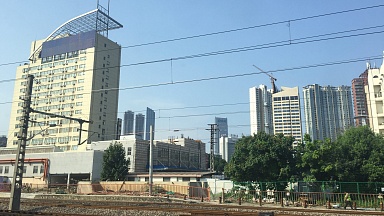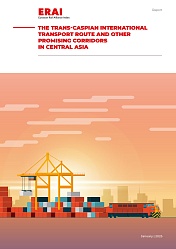The project entails the construction of 130 kilometres of railways, three switches, 13 bridges, five rail overpasses, and one road crossing. KTZ will purchase around 228,000 sleepers and 16,000 tons of rail to create the new infrastructure. Construction started on Tuesday 14 November, with the participation of Kazakhstan’s Prime Minister Alikhan Smailov. «The new line will reduce the load on the Almaty hub by 40 per cent and reduce the cargo delivery time to 24 hours», the company specified. It is not clear how much this project will cost and how long it will take to commission it.
This is not the only project aiming at enhancing the trade relationship between the two countries. When it comes to the Almaty area, KTZ is collaborating with China’s Xi’an Dry Port to build a new rail logistics terminal to serve e-commerce volumes. In addition, a new consolidation centre was set up in the city by Chinese company Shandong Hi-Speed Group, the «Qilu» China Europe Express operator, and Atasu Group, which owns the Almaty rail terminal. Moreover, the Moyynty-Dostyk line, leading from Kazakhstan into China via Alashankou, is currently being doubled and should be ready by 2025. KTZ said it is also planning to begin constructing a new railway from Ayagoz to Bakhty, which would create another rail border crossing between the two countries in the Kazakh northeast.
China-Kazakhstan rail freight volumes keep growing
As KTZ pointed out, rail freight volumes between China and Kazakhstan are on the rise. In 2022, these volumes amounted to 23 million tons and KTZ said this figure is even higher for 2023, with an estimated increase of 22 per cent. One of the main driver of this surge is grain transportation. Kazakh grain exported to China via rail has increased four times between September 2022 and June 2023, compared to the same period 12 months prior. KTZ believes that these volumes could further double in 2024.





